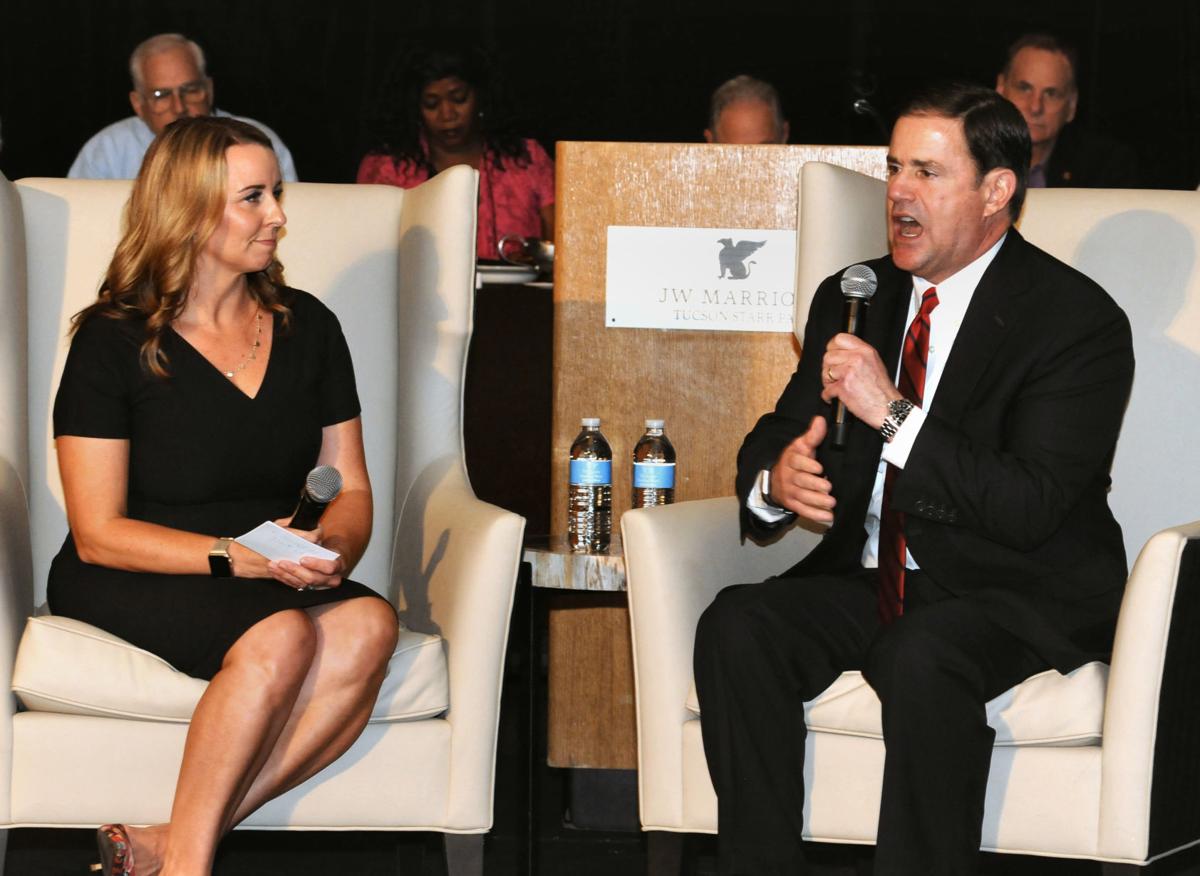Gov. Doug Ducey wants to take a new look at legislation he signed three years ago that pretty much stripped cities of their ability to regulate vacation rentals.
He said Thursday he still believes in the rights of individuals to be able to rent out rooms in their homes — and their whole homes for special events like the Phoenix Open — to earn extra money. But Ducey conceded that the 2016 law may be used in ways that were not intended and have been “disruptive.”
That may include the practice of real estate speculators buying up homes in neighborhoods for the sole purpose of turning them into short-term rentals, he said.
The comments come on the heels of complaints from some communities, particularly tourist destinations, where much residential rental stock has been turned into short-term rentals, reducing the supply of affordable housing.
Senate President Karen Fann, R-Prescott, said developers are constructing homes with eight bedroom suites for the specific purpose of renting them out to tourists.
“So this is now people circumventing all the zoning regulations and everything else that hotels and motels have to go through,” said Fann. “They’ve found a loophole that they are now building, if you will, mini hotels and motels in residential neighborhoods.”
Fann met Wednesday with more than 100 city officials at the League of Arizona Cities and Towns convention in Tucson to talk about the issue.
On Thursday, Ducey also attended the event.
In signing the original 2016 law, Ducey proclaimed himself an unabashed supporter of the concept of unregulated vacation rentals.
“For thousands of hardworking citizens, opening up their homes to out-of-state guests provides the financial breathing room they need to provide for their family or enjoy an extra expense that they otherwise couldn’t afford,” he said at the time.
The law did more than keep cities from telling people they cannot rent out a bedroom or their home. There is no limit on the number of properties an investor can buy and days a home can be rented out, potentially turning a neighborhood into a vacation rental zone. Ducey at the time brushed aside the question of whether that could change the character of neighborhoods. “I’m not going to answer these hypotheticals,” he told Capitol Media Services at a signing ceremony organized by Airbnb, a company that arranges short-term rentals through its internet app.
“The markets adjust,” Ducey said then. “Somehow we survive people making entrepreneurial decisions, and innovative apps like this provide convenience and cost-sharing opportunities.”
On Thursday, Ducey acknowledged that the law he signed didn’t quite work out the way he had envisioned.
“I think there were some unintended consequences in a law that had the best of intentions,” he said, which he added is “not unusual” in the legislative process.
“It does appear in the situation of Airbnb and other organizations that we have some people out there that are doing some things that are disruptive to communities,” Ducey said.
“I do think there are some things we can address in terms of public policy,” he said. “And we’re going to be doing that in the upcoming legislative session.”
Fann said Thursday that what lawmakers voted for in 2016 was not what they got. The measure was promoted as helping elderly homeowners keep their homes, she said.
“Why shouldn’t the little old lady be able to rent her house out for 30 days and she goes and visits the grandkids?” she said.
“We get that,” she said. “And that’s the bill of goods we were sold.”
Rep. Noel Campbell, R-Prescott, said his ideal solution would be to pretty much scrap the 2016 law. “I support the neighborhoods,” he said.
As far as he’s concerned, the issue of how and when people can rent out their homes should be left to local city councils, unfettered by legislative intervention.
Campbell was one of only seven lawmakers to vote against the 2016 measure.
Another was Rep. John Kavanagh, R-Fountain Hills, who also continues to try to restore more local control. But he’s not convinced that outright repeal is politically possible.
“My ideal solution would be to ban them from residential zones,” he said.
Ducey, for his part, appears more interested in minor tinkering.
“It’s really digging in to where the specifics are and how we fix it without wholesale change in terms of what citizens can do if they want to legitimately rent out their home for the Phoenix Open, or some other event during spring training,” the governor said.
What that means, he said, is protecting “individual rights.”





